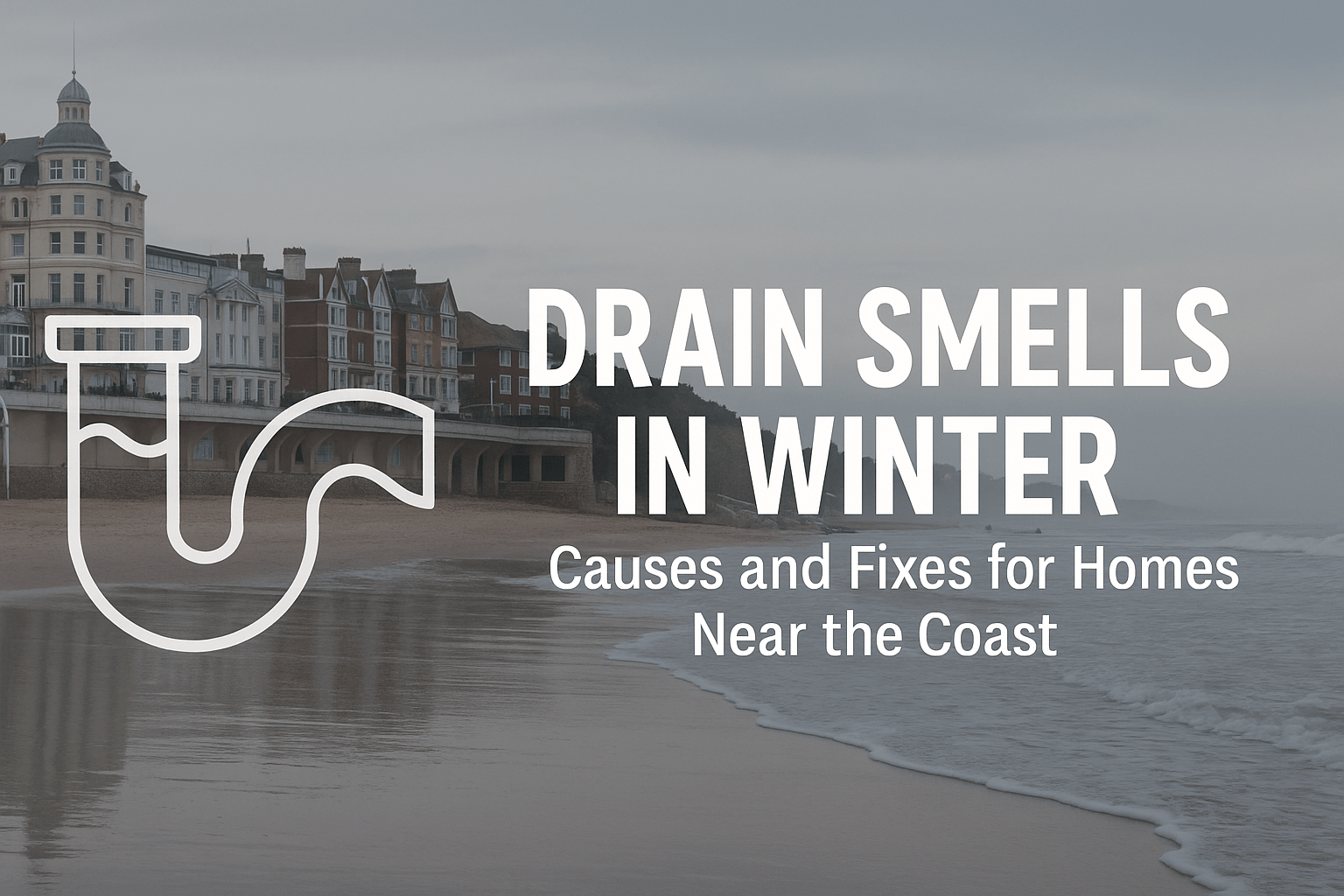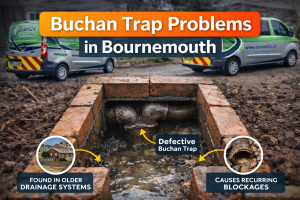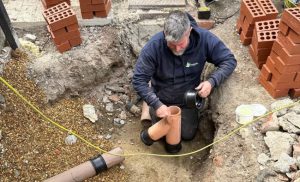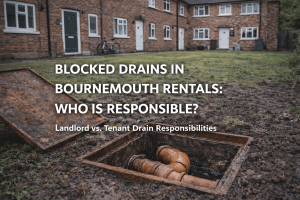When temperatures drop, strange odours can creep up from your drains — especially if you live near the coast in Bournemouth. Salt air, extra rainfall, and low temperatures can combine to create the perfect conditions for blocked or stagnant drains.
Understanding why drain smells happen in winter and how to tackle them can keep your home fresh and odour-free all season long.
🌊 1. Why Do Drains Smell Worse in Winter?
Cold weather affects your entire drainage system. When water temperature drops, grease and fat solidify, clinging to pipe walls and trapping debris. Combined with heavier rain and reduced evaporation, these blockages cause bacteria to build up — the true source of foul odours.
Homes along Bournemouth’s coastal zones are particularly vulnerable as sea air adds moisture to pipework and slowly corrodes older materials. If you notice smells after storms or cold snaps, that’s a warning sign of slow drainage or standing water in traps.
🧼 2. Common Sources of Winter Drain Odours
- Kitchen sinks: Fats and food particles solidify in cool pipes.
- Bathroom drains: Hair and soap scum form a film that traps odour bacteria.
- External drains: Fallen leaves and sand from coastal winds block gullies.
- Soakaways: Saturated ground can stop proper drainage flow.
- Old traps and vents: Evaporated water seals let smells escape indoors.
Each problem needs a slightly different fix — but quick inspection and clearing is always the first step.
⚙️ 3. Fixing the Problem Before It Spreads
Start with simple home checks:
✅ Run hot water down each drain weekly.
✅ Pour a mix of baking soda and vinegar to neutralise smells.
✅ Clean gully grates and remove leaves after storms.
✅ Ensure your u-bends always hold water to block gas backflow.
If the smell persists, a professional drain jetting service can flush debris and biofilm from the pipework. Bournemouth Drains24 uses high-pressure jetting and CCTV drain surveys to locate hidden build-ups without digging up your property.
🌧 4. Preventative Maintenance for Coastal Homes
- Schedule annual CCTV surveys before winter to catch early signs of blockages.
- Keep gullies and soakaways free of sand and salt sediment.
- Ask for drain descaling if your home is older than 25 years.
- Fit rat stoppers — vermin activity often worsens smells from sewer gas leaks.
By staying proactive, you’ll avoid both unpleasant odours and costly repairs later on.
🧩 5. When to Call the Experts
If smells return quickly after DIY cleaning or are stronger outside the property, call a specialist. Persistent odours may mean broken seals, collapsed pipes or soakaway failures.
Bournemouth Drains24 offers 24/7 diagnostics and repairs to get your drain system back on track fast.
Drain Smells FAQs
What causes drain smells during cold weather?
Grease hardening, blocked traps and bacterial growth in standing water.
Can salt air from the coast worsen the problem?
Yes — it corrodes pipe joints and adds moisture that encourages build-up.
How often should I clean external drains?
At least once per month in winter or after heavy rain events.
Is drain jetting safe for old pipes?
Yes, when done by qualified technicians with pressure control.
Can you remove odours without digging?
Absolutely — we use jetting, enzyme treatments and CCTV inspections for no-dig results.







